-
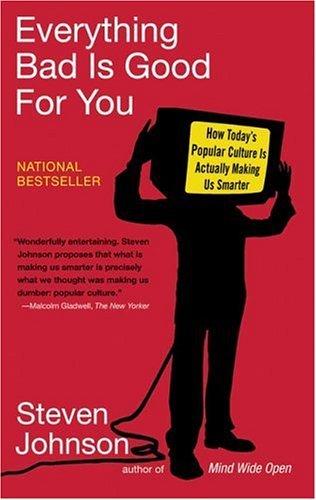
Everything Bad Is Good for You
From the author of the New York Times bestseller Mind Wide Open comes a groundbreaking assessment of popular culture as it's never been considered before: through the lens of intelligence. The $10 billion video gaming industry is now the second-largest segment of the entertainment industry in the United States, outstripping film and far surpassing books. Reality television shows featuring silicone-stuffed CEO wannabes and bug-eating adrenaline junkies dominate the ratings. But prominent social and cultural critic Steven Johnson argues that our popular culture has never been smarter. Drawing from fields as diverse as neuroscience, economics, and literary theory, Johnson argues that the junk culture we're so eager to dismiss is in fact making us more intelligent. A video game will never be a book, Johnson acknowledges, nor should it aspire to be-and, in fact, video games, from Tetris to The Sims to Grand Theft Auto, have been shown to raise IQ scores and develop cognitive abilities that can't be learned from books. Likewise, successful television, when examined closely and taken seriously, reveals surprising narrative sophistication and intellectual demands. Startling, provocative, and endlessly engaging, Everything Bad Is Good for You is a hopeful and spirited account of contemporary culture. Elegantly and convincingly, Johnson demonstrates that our culture is not declining but changing-in exciting and stimulating ways we'd do well to understand. You will never regard the glow of the video game or television screen the same way again. -
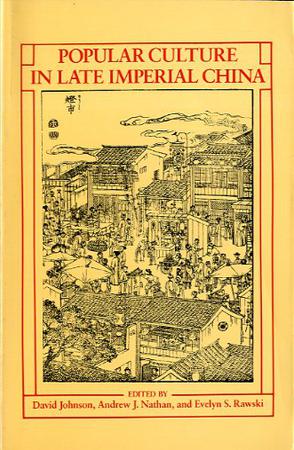
Popular Culture in Late Imperial China
-
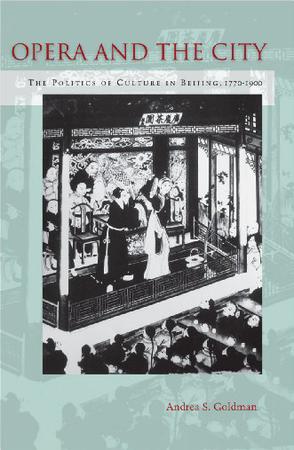
Opera and the City
In late imperial China, opera transmitted ideas across the social hierarchy about the self, family, society, and politics. Beijing attracted a diverse array of opera genres and audiences and, by extension, served as a hub for the diffusion of cultural values. It is in this context that historian Andrea S. Goldman harnesses opera as a lens through which to examine urban cultural history. Her meticulous yet playful account takes up the multiplicity of opera types that proliferated at the time, exploring them as contested sites through which the Qing court and commercial playhouses negotiated influence and control over the social and moral order. Opera performance blurred lines between public and private life, and offered a stage on which to act out gender and class transgressions. This work illuminates how the state and various urban constituencies manipulated opera to their own ends, and sheds light on empire-wide transformations underway at the time. -
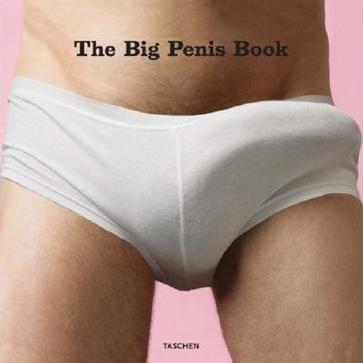
The Big Penis Book
In The Big Penis Book we explore the centuries-old fascination with the large phallus, a fascination common to men and women alike. This hefty book is profusely illustrated with over 400 historic photos of spectacular male endowments, including rare photos of the legendary John Holmes. The majority of the photographs are from the 1970s, when the sexual revolution first freed photographers to depict the male entirely nude. Photographers include Bob Mizer of Athletic Model Guild, David Hurles of Old Reliable, Colt, Falcon, Sierra Domino, Third World, and Champion Studios, with each of these iconic photographers interviewed or profiled, along with information about each of their models. And if this isn’t enough, the book closes with a special surprise comparable to the Guinness Book of Records’ Norma Stitz featured in The Big Book of Breasts! Can you guess what body part Dian is dissecting next? -

英国原来是这样
《英国原来是这样:英国社会与文化50主题(英汉对照读本)》作者Martin Boyte从我们自以为熟悉的典故入手,告诉我们每一个想象后面的真实故事,作为一名从事多元文化研究的大学老师,Martin还特别关注外国人在英国可能会遇到的各种文化冲突,通过背景介绍和情景会话,让我们切身领会英国文化的方方面面。也许,在阅读《英国原来是这样:英国社会与文化50主题(英汉对照读本)》后,你会对那个欧洲西北海岸外的岛国有一些不同的了解。说起英国你会想到什么?是绅士和教堂的传统欧洲国家?还是莎士比亚喜剧的文化胜地?是炸鱼薯条的市民乐园?还是披头士和007的时尚老巢?关于英国,你也许能说出一长串典故,但一个本土英国人可能对你的清单付之一笑:“真正的英国不那么简单……” -
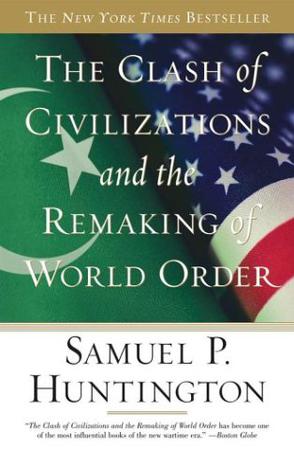
The Clash of Civilizations and the Remaking of World Order
在线阅读本书 Based on the author's seminal article in Foreign Affairs, Samuel P. Huntington's The Clash of Civilizations and the Remaking of World Order is a provocative and prescient analysis of the state of world politics after the fall of communism. In this incisive work, the renowned political scientist explains how "civilizations" have replaced nations and ideologies as the driving force in global politics today and offers a brilliant analysis of the current climate and future possibilities of our world's volatile political culture.